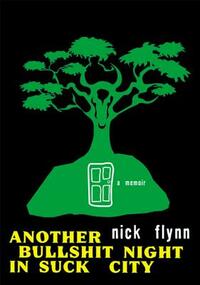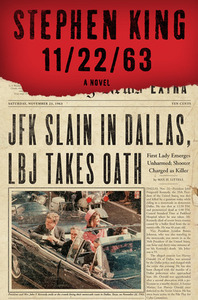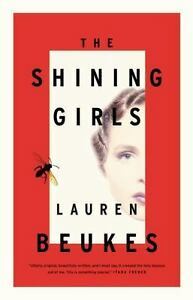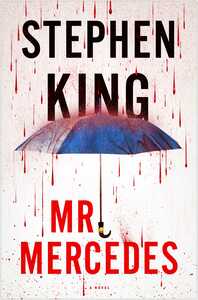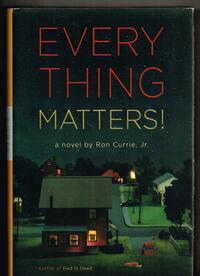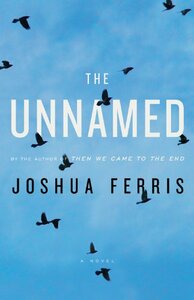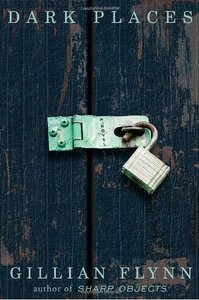Take a photo of a barcode or cover
keithmac's Reviews (147)
Read this one a long time ago, back when I was just a dorky 21-year-old working summers in a map store in downtown Vancouver. Was picking out books at random in the library and reading them cover to cover. This one was one of my pleasant surprises and had me chuckling all the way through. Real rollicking read and very much as irreverent as its title suggests.
Just finished reading this time-travel opus an hour ago. The reason I read it? I was a huge Stephen King fan in my earlier years - devouring stuff like The Shining and Carrie when I was barely a teenager. In fact, The Shining for all its vulgarities and adult-themed material was a joy for me to read at 12.
11/22/63 is probably my first King book in decades. It's certainly the first I have actually read cover-to-cover in decades. What I will say about it is that it is an incredibly easy read for a literature muncher like myself: spanning some 700-odd pages, I read the whole thing in less than a couple weeks during sleepless nights and while lying in my bed ready to visit dreamland. Normally, I read for a few pages and then doze off, but this was such an easy, captive read that I would often stay up another hour and finish another 100 pages.
That's a testament to Stephen King, really: he's an incredibly fluid writer and the words just flow right off the page. No one can accuse him of being a dense, word-heavy, literary writer - he is one of the world's bestselling novellists for a major reason: he is phenomenally easy to read and still packs a punch.
Now, on to the bad stuff. 11/22/63 is not his best work. It can hardly hold a candle to his great stuff from the 1970s. In fact, I found that it rambled on and on and on about insignificant details - in fact, with George Amberson's adventures back in the late 1950s and 1960s described in such detail, I wondered if King himself longed for the simpler days as well. He wrote of the late 1950s and early 1960s with such nostalgic twang that, for a 40-something like me, sometimes got a little tiring. It's so easy to be nostalgic about the past, and so easy to forget about the fact that the past is only so great for someone looking back at it. Today's world is the way we know it, and today's world will look amazing to someone in 2050, the same way I look back at the simpler, pre-Internet, pre-Twitter days of the 1970s and 1980s with a smile on my face.
King, himself, is guilty of this. If he had cut down on the excess of nostalgia that permeates the middle 200 pages or so, this book might be better. It's a 700-page story that could easily be told in 500, or even 400 pages.
Time travel has been beaten to death by writers and storytellers everywhere as well. This tale is no different. I am a huge fan of time travel-themed stories, and went in hoping that some kind of revelation or something amazingly insightful or new would come out of a brilliant mind such as King's. But no. Rather, the end result was a pretty standard, fuck-with-the-past-and-you-mess-up-the-present kind of story.
Sorry, Mr. King. I really wanted this to be good. But it's shelved now and I'm not sure I'll pick it up again. It's not a bad work, but it's not insightful, clever, original or anything like that. It's just quite long-winded and excessively focused on personal experience rather than the big picture - which is fine, except with such a huge focus on the JFK assassination I would have hoped for a much more big-picture kind of story. Here's to better work next time.
11/22/63 is probably my first King book in decades. It's certainly the first I have actually read cover-to-cover in decades. What I will say about it is that it is an incredibly easy read for a literature muncher like myself: spanning some 700-odd pages, I read the whole thing in less than a couple weeks during sleepless nights and while lying in my bed ready to visit dreamland. Normally, I read for a few pages and then doze off, but this was such an easy, captive read that I would often stay up another hour and finish another 100 pages.
That's a testament to Stephen King, really: he's an incredibly fluid writer and the words just flow right off the page. No one can accuse him of being a dense, word-heavy, literary writer - he is one of the world's bestselling novellists for a major reason: he is phenomenally easy to read and still packs a punch.
Now, on to the bad stuff. 11/22/63 is not his best work. It can hardly hold a candle to his great stuff from the 1970s. In fact, I found that it rambled on and on and on about insignificant details - in fact, with George Amberson's adventures back in the late 1950s and 1960s described in such detail, I wondered if King himself longed for the simpler days as well. He wrote of the late 1950s and early 1960s with such nostalgic twang that, for a 40-something like me, sometimes got a little tiring. It's so easy to be nostalgic about the past, and so easy to forget about the fact that the past is only so great for someone looking back at it. Today's world is the way we know it, and today's world will look amazing to someone in 2050, the same way I look back at the simpler, pre-Internet, pre-Twitter days of the 1970s and 1980s with a smile on my face.
King, himself, is guilty of this. If he had cut down on the excess of nostalgia that permeates the middle 200 pages or so, this book might be better. It's a 700-page story that could easily be told in 500, or even 400 pages.
Time travel has been beaten to death by writers and storytellers everywhere as well. This tale is no different. I am a huge fan of time travel-themed stories, and went in hoping that some kind of revelation or something amazingly insightful or new would come out of a brilliant mind such as King's. But no. Rather, the end result was a pretty standard, fuck-with-the-past-and-you-mess-up-the-present kind of story.
Sorry, Mr. King. I really wanted this to be good. But it's shelved now and I'm not sure I'll pick it up again. It's not a bad work, but it's not insightful, clever, original or anything like that. It's just quite long-winded and excessively focused on personal experience rather than the big picture - which is fine, except with such a huge focus on the JFK assassination I would have hoped for a much more big-picture kind of story. Here's to better work next time.
Eh.
Honestly, eh.
It started off so good. The colourful, fluid prose of Beukes really comes off the page and brings the story to life.
But all the cliches are there. Serial killers. The upstart young journalist who you root for. The seedy underbelly of a big American city past and present - in this case, Chicago. A mystery involving numerous dead women - all gutted and butchered in Jack the Ripper fashion - and said wannabe journalist is on the hunt to solve it. Oh! What's more? This journalist happens to be a survivor of that serial killer, one of his rare failed "killings".
Enough cliches for you? How about the writing? As good of a writer Beukes is, she does litter her pages with numerous literary cliches. I made a note of a couple of them in my Kobo reader but somehow they have disappeared. So you'll just have to believe me.
But the whole thing is turned on its head with the introduction of time travel as an essential plot device. As it happens, the serial killer in the story is also a time traveller. Said wannabe journalist catches on to some strange things about each of these horrific murders - for instance, a baseball card of a player who could not have possibly been playing at the the time of the murder, as he would have just been a kid at the time. So she puts two and two together and... OK, I won't give away the story too much.
Suffice to say, I found Shining Girls an enjoyable read. It's not the best I've read, not by a long shot, but it's certainly great airplane reading. I blazed through it pretty quickly, maybe in a week or two's time, and finished the last 75-100 pages in one sitting. "Hold on, honey," I said to my wife, "I's just gots anudda 65 pages to go an' then ah'll come ta bed." And it wasn't even half an hour until I was done. That's how quickly and easily I could read it.
So, overall verdict? I give mega-points to Beukes for her clever premise, and I'll hand it to her that she has pulled off the idea with a good, solid story that made for intriguing reading. The book was never boring. But at the same time, it never seared into my imagination and knocked my socks off the way other books can do. Just as I sat to write this review, I even had to strain to remember the name of the book, and it took a moment or two to recollect what had happened.
Reading the reviews out there, I see that Beukes gained massive accolades for her scathingly accurate portrayal of Chicago past and present, its culture, its streets, its people, all the little things that make Chicago, well, Chicago. But me? I wasn't that impressed. I know Beukes is from South Africa, but honestly, anyone with a bit of time on her hands and access to the Internet could have come up with the stuff she came up in that book.
I've also learned that plans are underway to turn the book into a TV series. OK, I can totally see that happening. The book reads very much like a movie or TV show, and it makes total sense as a show. I'd watch it.
But in the end? I won't be fighting my way to the front of the lineup to get Beukes' next book. I'm intrigued by what she may come up with next, but take away the premise and you have yourself just a general, above-average, well-written story that is just, eh, pretty good. Nothing to knock your socks off.
Honestly, eh.
It started off so good. The colourful, fluid prose of Beukes really comes off the page and brings the story to life.
But all the cliches are there. Serial killers. The upstart young journalist who you root for. The seedy underbelly of a big American city past and present - in this case, Chicago. A mystery involving numerous dead women - all gutted and butchered in Jack the Ripper fashion - and said wannabe journalist is on the hunt to solve it. Oh! What's more? This journalist happens to be a survivor of that serial killer, one of his rare failed "killings".
Enough cliches for you? How about the writing? As good of a writer Beukes is, she does litter her pages with numerous literary cliches. I made a note of a couple of them in my Kobo reader but somehow they have disappeared. So you'll just have to believe me.
But the whole thing is turned on its head with the introduction of time travel as an essential plot device. As it happens, the serial killer in the story is also a time traveller. Said wannabe journalist catches on to some strange things about each of these horrific murders - for instance, a baseball card of a player who could not have possibly been playing at the the time of the murder, as he would have just been a kid at the time. So she puts two and two together and... OK, I won't give away the story too much.
Suffice to say, I found Shining Girls an enjoyable read. It's not the best I've read, not by a long shot, but it's certainly great airplane reading. I blazed through it pretty quickly, maybe in a week or two's time, and finished the last 75-100 pages in one sitting. "Hold on, honey," I said to my wife, "I's just gots anudda 65 pages to go an' then ah'll come ta bed." And it wasn't even half an hour until I was done. That's how quickly and easily I could read it.
So, overall verdict? I give mega-points to Beukes for her clever premise, and I'll hand it to her that she has pulled off the idea with a good, solid story that made for intriguing reading. The book was never boring. But at the same time, it never seared into my imagination and knocked my socks off the way other books can do. Just as I sat to write this review, I even had to strain to remember the name of the book, and it took a moment or two to recollect what had happened.
Reading the reviews out there, I see that Beukes gained massive accolades for her scathingly accurate portrayal of Chicago past and present, its culture, its streets, its people, all the little things that make Chicago, well, Chicago. But me? I wasn't that impressed. I know Beukes is from South Africa, but honestly, anyone with a bit of time on her hands and access to the Internet could have come up with the stuff she came up in that book.
I've also learned that plans are underway to turn the book into a TV series. OK, I can totally see that happening. The book reads very much like a movie or TV show, and it makes total sense as a show. I'd watch it.
But in the end? I won't be fighting my way to the front of the lineup to get Beukes' next book. I'm intrigued by what she may come up with next, but take away the premise and you have yourself just a general, above-average, well-written story that is just, eh, pretty good. Nothing to knock your socks off.
You may think me a cranky quartenarian with a heart of concrete for giving only three stars this beautifully written slice of what I'll call experimental, cosmos-conscious fiction. Bear with me here. I'll go into the good: it's wonderfully lyrical, with a continuous trickle of sadness in its deceptively simple prose that left me breathing a little heavier and contemplating the essence of life and everything all around me. It also drew me in because it was so fluid and easy to read - I blazed through it during my twice-daily commutes on the Orange Line to and from work in Boston - and more so, I especially loved the second-person "God" voice that addressed the protagonist himself throughout. Quite original and refreshingly so, although I'd question the comparisons to Vonnegut, because the latter is much more savage in his satire than Mr. Currie was in this book.
Now, that being said, two days after finishing it, I felt that annoying emptiness of feeling that I sometimes feel when I read a book that's pretty darn good but doesn't have that powerful lasting impact. I'm not saying it's pablum - it's far from it, actually - but for me, however sad, introspective, insightful and clever the book was, it just didn't leave me thinking too deeply once I was done. It could just be the frame of mind I was in at the time, but there it is.
The second-person narrative also gets a little long towards the end. I won't offer spoilers, but I will say this: it felt as if the ending was rushed and contrived. That's probably my main issue with it.
All that being said, what a wonderful and beautiful story. I definitely encourage reading this, especially on a rainy Sunday.
Now, that being said, two days after finishing it, I felt that annoying emptiness of feeling that I sometimes feel when I read a book that's pretty darn good but doesn't have that powerful lasting impact. I'm not saying it's pablum - it's far from it, actually - but for me, however sad, introspective, insightful and clever the book was, it just didn't leave me thinking too deeply once I was done. It could just be the frame of mind I was in at the time, but there it is.
The second-person narrative also gets a little long towards the end. I won't offer spoilers, but I will say this: it felt as if the ending was rushed and contrived. That's probably my main issue with it.
All that being said, what a wonderful and beautiful story. I definitely encourage reading this, especially on a rainy Sunday.
Appreciated the effort but not quite nearly as good as And Then We Came To The End. It's a tall order to match that one, but I expected a lot more than long, windy pages of stumbling around aimlessly. There was a real opportunity to get deeper into mental illness, but I felt like that opportunity was missed. Still very well written, though.
